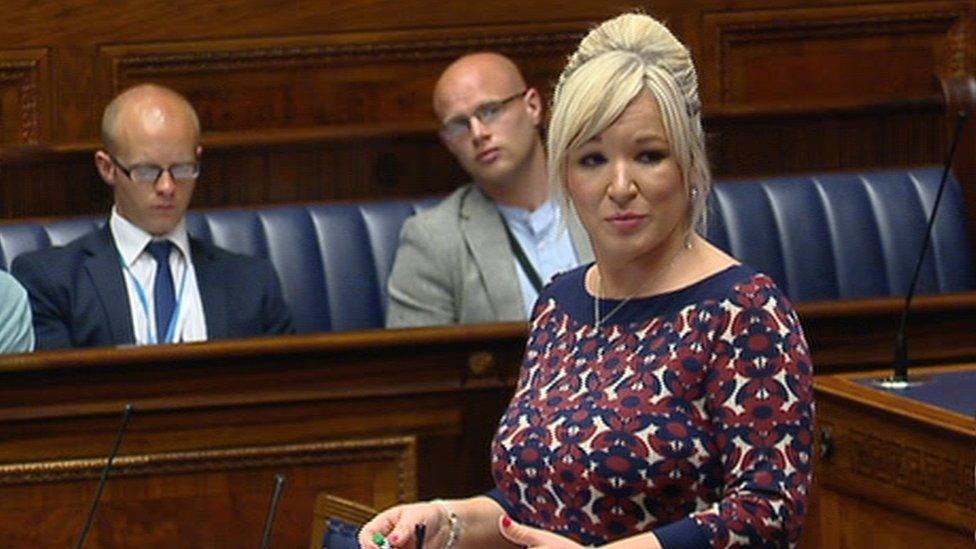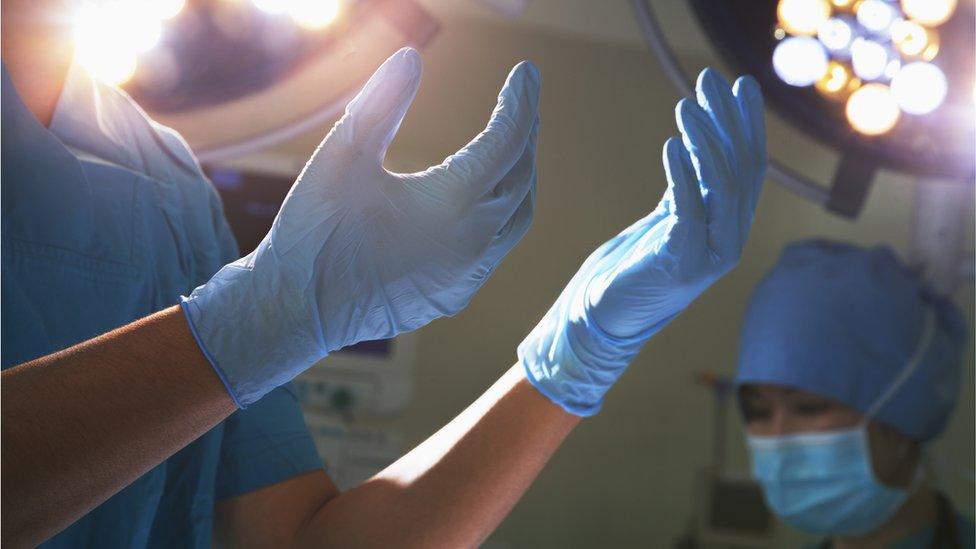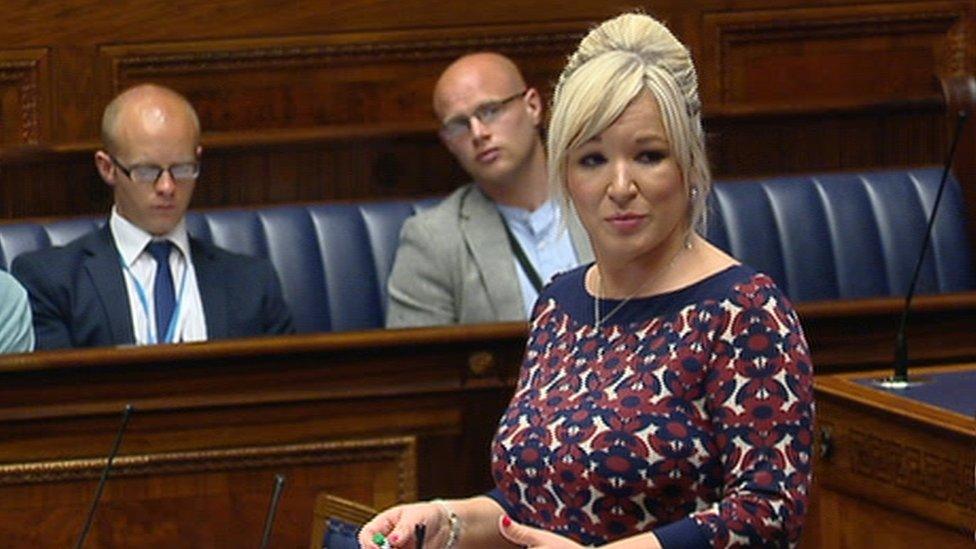NI health funding: How is the extra £72m likely to be spent?
- Published

An extra £72m of additional funding has been allocated to Northern Ireland's health service but what is surprising is that it appears none of this money will be used to tackle waiting lists
So, it appears Northern Ireland's Health and Social Care Service is to get an extra £72m as part of the June Monitoring round.
That means additional money as a result of a reallocation of funds from the Northern Ireland Executive.
It is a one-off payment with £5m of it going entirely on capital or building funds. So how will the money be spent?
At this stage there is little detail. However, from the health minister's statement it seems that the money will go directly to unscheduled care which includes emergency departments.
It will also be directed to those areas within hospitals which often experience bed blocking - when patients cannot be discharged as there is nowhere for them to be cared for in the community, including in their own homes.
'Reform'
Health Minister Michelle O'Neill said: "This funding will help address a range of front line pressures right across the health and social care sector, including unscheduled care, improving patient flow through our hospitals and additional social care provision to help meet increasing demands."
Alongside welcoming the funding, the minister took the opportunity to stress that she supports reform of the health and social care system.
Revealing that she met Prof Rafael Bengoa on Tuesday morning, who is leading the expert panel on the reform of health and social care in Northern Ireland, the minister said it is about changing how services are delivered.
"He made it clear that his report is not about closing hospitals, it is about changing the way services are provided," Ms O'Neill said.
"There needs to be a shift in focus from where services are currently designed around the people who deliver them and the places where they are delivered, to focus on the needs of the patient."

Health Minister Michelle O'Neill has said she supports reform of the health and social care system
So the minister appears to be pressing ahead with plans started by her Democratic Unionist Party (DUP) predecessor Simon Hamilton to change how services are delivered or which buildings they are delivered from.
Mr Hamilton also triggered the idea that politics should be removed from health.
That theme continued when, announcing the funding, the Finance Minister Máirtín Ó Muilleoir said it was important that politics be taken out of health.
What is surprising is that none of this money will be used to tackle waiting lists.
A statement also refers to providing additional social care provision. That suggests extra money will perhaps be spent on providing home help or domiciliary care, so patients can be discharged from hospital quicker in order to be cared for at home.
999 response
Addressing the assembly last week, the health minister said she would do whatever was possible to help people who required operations and treatment.
"While this short-term financial boost is to be welcomed, it is only through longer-term structural reform that we will secure an efficient and effective health and social care service."
As part of the £72m investment, funding is also being provided for projects including providing support for the hearing screening programme for newborn babies.
According to the Department of Health, the funding will provide a robust, failsafe mechanism for recording the results of newborn hearing screening tests to ensure that the right treatment can be provided to babies.
Also money will be used towards funding the Ambulance Response System.
The aim is to replace the mobile data and Automated Vehicle Location System (AVLS) system for mobilisation of ambulance fleet and bidirectional communication between crews and ambulance control and ensure a reliable 999 response to patients.
- Published14 June 2016

- Published6 June 2016
